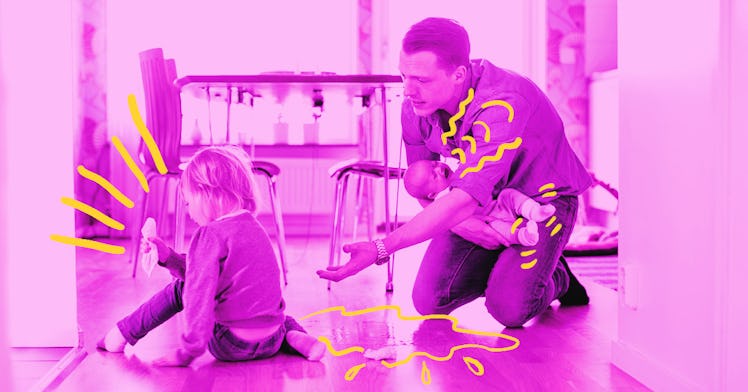Parents With Two Children Are Losing Their Minds, Study Confirms
Researchers surveyed 20,000 Australians over the course of 16 years, and found that second children “increase time pressure” and “deteriorate parents’ mental health.”

When my wife and I geared up for our second child, the calculus was simple enough. Life is pretty hard with one kid. How much worse could it get? Experience proved us wrong. It could get much, much worse. And now a new study confirming that a second child wreaks havoc on your mental health has arrived to rub it in. Researchers surveyed 20,000 Australians over the course of 16 years, and found that second children “increase time pressure” and “deteriorate parents’ mental health.” Because, of course they do.
“The most ambitious discussions about having second children occur during a date night, in between the first and second bottle of wine,” the authors write. “But, then there are the toys, the sleepless nights, the constant barrage of ‘why?’ questions and the plethora of sticky handprints.”
It’s like they know me.
The researchers plumbed 16 years of panel data from the Household, Income and Labour Dynamics in Australia Survey, which followed 20,009 individuals. They found that both first and second births increased parents’ time pressure in roughly the same way. That said, the effects were more significant for mothers than fathers. But that doesn’t mean that fathers are getting off easy, particularly when it comes to the second child. When looking at mental health, mothers saw improvement after the first child is born. Add a second kid, however, and paternal mental health plummets.
And you know how they always say it gets better? It doesn’t. “We hoped parents’ time pressure would diminish over time,” the authors write. Alas, “as they gained more skills or kids entered school years, we found that time pressure lingered…. Parents of third children fare no better.”
The takeaway, however frustrating, is that parents need to get more help. Especially as they begin adding children to the family. “Mothers cannot shoulder the time demands of children alone,” the authors write. “Even when they reduce their work time to accommodate children’s demands, their time pressures do not ease. This has important consequences for their mental health.” And since the condition is chronic, with no evidence of letting up as children mature, “maternal time pressure must become a top health priority for practitioners and policymakers.”
Children and families cannot thrive under such stressful conditions, the authors caution. “Since poor post-partum mental health can lead to poor outcomes for children, it is in the national interest to reduce stressors so that mothers, children and families can thrive.”
This article was originally published on